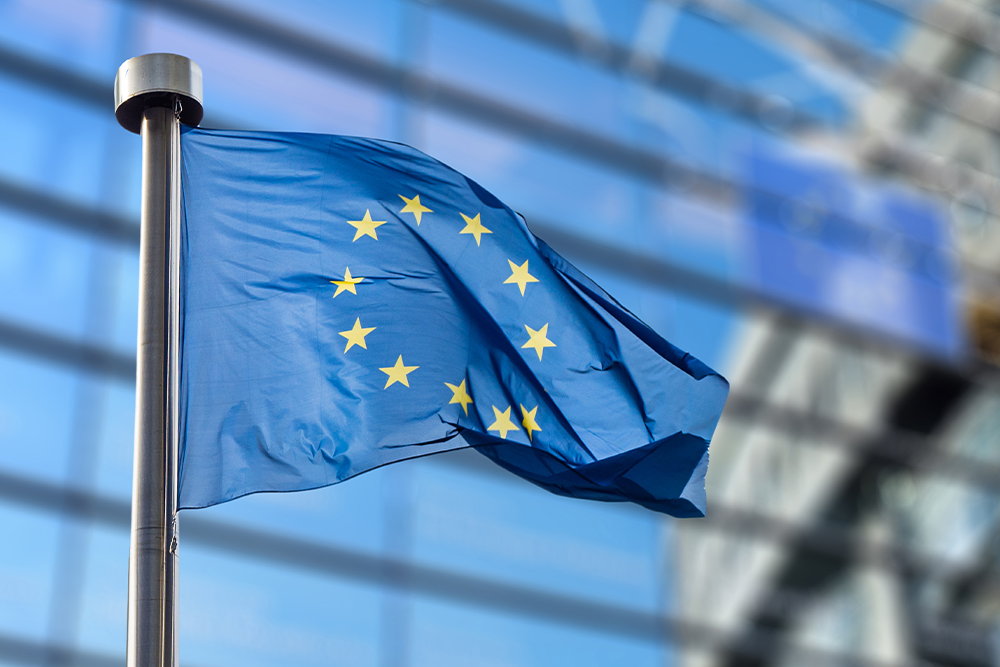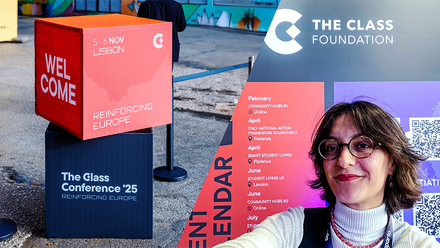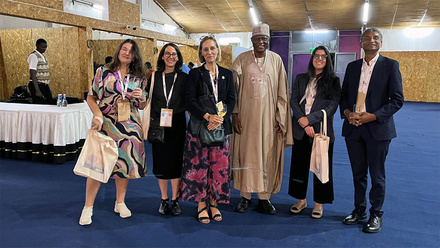An open letter to the European Commission: COVID-19 and beyond

On behalf of the EAIE Board, President Sabine Pendl delivers this open letter to the European Commission in response to the ongoing COVID-19 crisis, applauding the Commission on the steps taken so far and issuing an appeal for continued attention and concrete action on six fronts.
In light of the extraordinary circumstances currently facing the international higher education community across Europe and around the world, the European Association for International Education (EAIE) congratulates the European Commission for its recent fast action to issue essential practical advice on Erasmus+ and European Solidarity Corps mobility.
The decisions taken by the Commission speak directly to many of the concerns of the EAIE. The following reflections and calls for action outline how the EAIE relates to these developments and seeks to encourage further steps by both the European Commission and the broader European international higher education community:
1. The challenges to mobility and to the normal operations of higher education institutions presented by the COVID-19 outbreak require flexibility from all of us. However, variations in responses from national agencies mean that not all stakeholders receive the best possible solutions. The EAIE would like to see all Erasmus National Agencies taking decisive action, in as standardised and clearly communicated an approach as possible, and the principle of force majeur applied on a general basis, in support of students, academics and institutions engaged in Erasmus+ programmes and projects.
2. Students receiving Erasmus+ grants should receive financial support in full if they earn the necessary ECTS, regardless of how those credits are earned (ie online or via traditional face-to-face instruction) or where they are earned (ie if the student is forced to physically depart the host country before the programme has ended). The European Commission is asking higher education institutions to move in this direction, so that the academic progress of students is preserved. The EAIE strongly supports and invites its members to operate under this new concept of mobility, which anticipates some of the novelties of the next Erasmus programme as well as more general concerns about the environment and sustainability.
3. Students facing interruptions in their programmes and who need extra time to complete coursework or programme requirements should be given reasonable flexibility with deadlines, taking into account everything from differing levels of internet access to time zone variables. The EAIE encourages all the international education community to be generous and cooperative to make it possible for students to attain their goals.
The course of the COVID-19 pandemic is uncertain, but the EAIE is convinced that approaches to international education will be significantly altered
4. Students and staff who had to cancel or shorten their programme participation due to the current situation should be equipped with the necessary financial support to offset the costs incurred. Students and staff who have experienced delays or interruptions in their programme participation, and for whom additional costs are implied in order to continue or restart their programme experience, should be provided with reasonable additional financial supports to make this possible.
5. In addition to financial support, careful attention needs to be given to the mental health and emotional well-being needs of students who have been adversely affected by this crisis. The EAIE urges the European Commission to draw on the expertise of the EAIE and others in these areas to help advance the development of relevant tools and standards.
6. The EAIE applauds the Commission’s decision to extend 2020 deadlines for Key Action programmes, in light of the difficulties experienced by applicants due to the COVID-19 outbreak. However, the EAIE urges the European Commission to consider aligning the current plans for flexibility – eg with respect to contract deadlines and reporting periods – across Actions as much as possible. Adjusting project evaluation criteria in light of the significant effects of the COVID-19 outbreak on project timelines and possibilities to achieve stated objectives would also be useful.
The course of the COVID-19 pandemic is uncertain, but the EAIE is convinced that approaches to international education will be significantly altered. The European Commission and the EAIE can and should be at the forefront of these developments. Specifically, actions should be taken now to ensure that the next generation of the Erasmus+ programmes is:
- Sufficiently funded to ensure appropriate diversity of programmes, broad inclusion of participants, and flexibility to weather major unexpected developments and disruptions.
- Deeply committed to and engaged with the relevant frontline technologies that support high-quality learning, teaching and research; meaningful student development; and effective administrative procedures, including through investment in equipment and training.
- Fully ready to lead the way globally on implementing Internationalisation at Home in support of transformative educational experiences for all European students, including active encouragement of a focus on international/intercultural learning outcomes and competencies in curricula.
- Equally dedicated to safeguarding the availability of mobility experiences as a core component of the European international education agenda.






